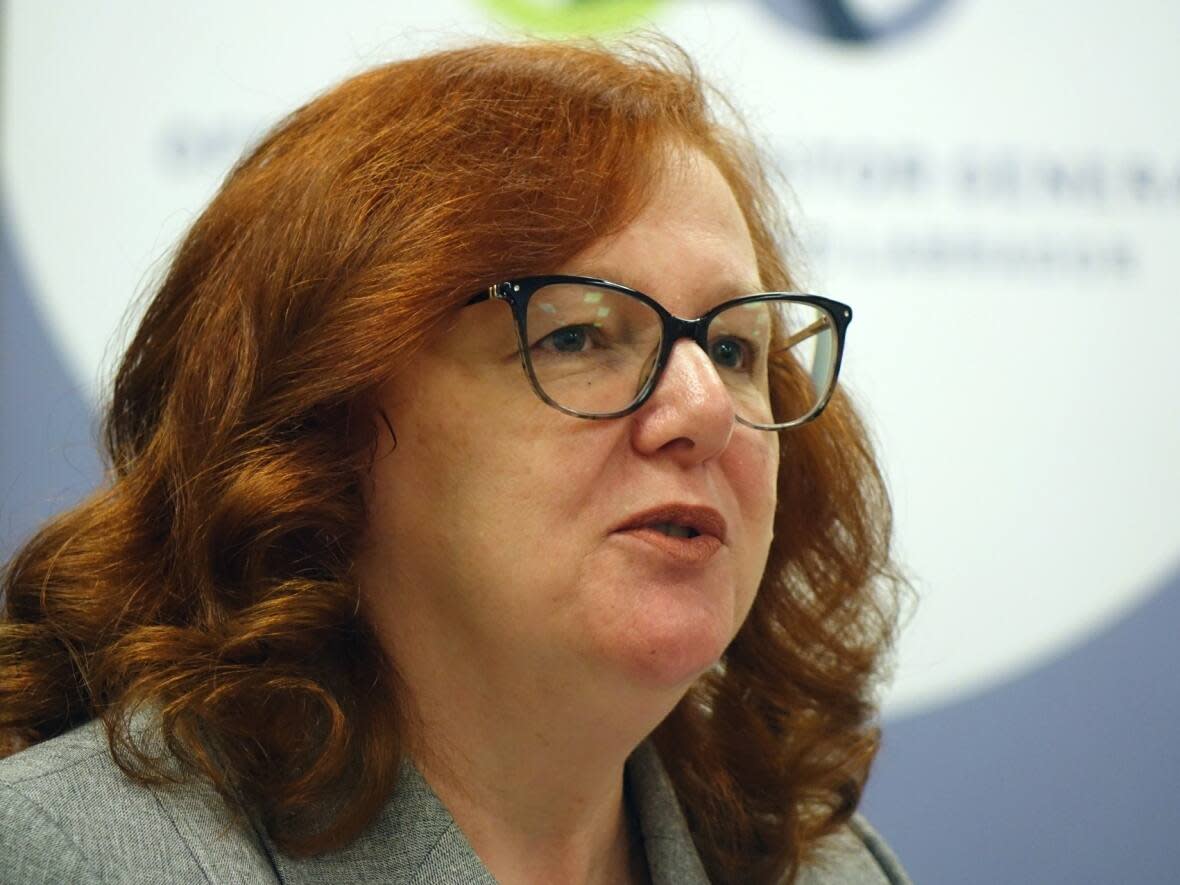Town allegedly submitting fake documents for COVID-19 money among auditor general's findings


A Newfoundland and Labrador town submitted allegedly phoney paperwork to receive COVID-19 stimulus funding, according to the provincial auditor general's annual report, which details several instances of potential government fraud.
Denise Hanrahan's report, released Thursday, lists numerous instances of potential fraud as reported by provincial government departments, such as unnamed municipality that was approved for a project with funding from a COVID-19 stimulus program.
"During the final report process for reimbursement, the town submitted allegedly fraudulent invoices and proof of payment," reads the report. No work had been done on the project, according to the report, and the town returned all payments. The Department of Municipal Affairs is planning a special inspection into the matter.
The report doesn't say how much was paid to the town, but the program involved offered municipalities up to $150,000 being offered to municipalities to repair community buildings or to fund projects that support residents' well-being, such as upgrading walking trails.
The report offers no further details on the incident with the Town but does list several other allegations of fraud by recipients of government funding. Another allegation surrounding COVID stimulus money involves the province's Artist Support program. That program offered $3,000 to professional artists for lost revenue and opportunities. Hanrahan's report said 29 applications had misleading information, and while most of those were identified and cancelled, some went through. "In 2020-21, four applications were paid to suspected irregular applicants, and in 2021-22, ten applications were paid."
Other instances of fraud reported by government departments
In January, the Department of Education reported that stolen identities had been used apply for student financial assistance. A review found that 28 potentially fraudulent applications had been received and were being processed. "Some applications made it through all steps of the application process, resulting in both federal and provincial student financial assistance being issued totalling in excess of $54,000." The matter is under investigation.
The Executive Council reported potential group insurance fraud by an employee, with the insurance provider finding 43 fraudulent claims by an employee from 2015 to 2020.
The Department of Tourism, Culture, Arts and Recreation reported multiple instances of suspected fraud of its artist support program, with 29 applications that appeared to contain misleading or misrepresented information. Most of the applications were cancelled before payments were made, but in 2020-21, four applications resulted in payments to "suspected irregular applicants." in 2021-22, payments were made to 10 irregular applications.
The Department of Health and Community Services reported an employee appeared to be working with another organization while receiving sick leave benefits from the provincial government..
The Department of Transportation and Infrastructure reported an instance of an altered cheque that never reached the intended payee. "The cheque was intercepted and materially altered to change the date and the payee, leaving the amount of the cheque unchanged," says Hanrahan's report.
An unnamed former deputy minister of the Department of Natural Resources may have been involved in his own hiring, or the hiring of his company, by the newly formed Oil and Gas Corporation of Newfoundland and Labrador.
Several instances of potential cheque fraud were reported across multiple departments, largely involving people attempting to cash the same cheque more than once. In all cases, the cheques were identified as duplicates, resulting in no loss to the government.
There were also several reports of government credit cards used for personal use. In each case reported, the funds have been repaid or are in the process of being repaid, according to the report.

Finance Minister Siobhan Coady said overall she's happy with the report, and noted the fraud identified hasn't had a large impact.
"We're picking up the fraud very quickly and and getting restitution very, very quickly," she said. "There are a lot of preventative measures."
Hanrahan's report also targets unused COVID-19 relief funding, committed by the federal and provincial government. Out of a total of $700.8 million in combined funding from both levels of government, the auditor general found over $141 million of the committed funds had not yet been used.
Coady noted the report focused only on the fiscal period between April 2021 and March 2022, and said a lot of spending has happened since then.
"We had a lot of supports going to the people of the province on the cost of living. So since the time going back to March 2022, there may have been changes since that time in the disbursement of those funds."
The report also says the stability of the province's fiscal situation remains a significant concern. In 2022, the deficit was $271.91 million, while the net debt was $16.37 billion. Coady said last year's deficit was the province's smallest shortfall in about a decade, excepting 2019, when a one-time accounting surplus due to the Atlantic Accord put the province $479 million into the black.
The auditor general said several other audit reports are on track to be completed this year, including one on Memorial University.


